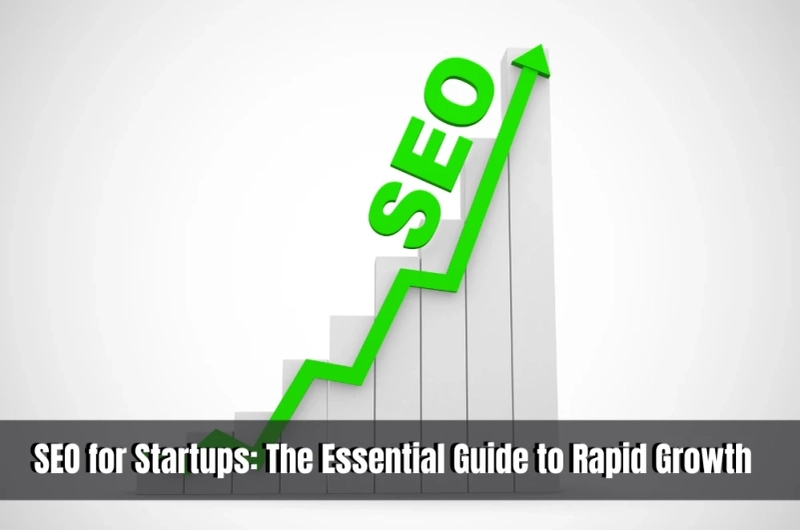Launched as a start-up, a business has loads of promise and is full of future potential. Nonetheless, it will not do without a great product or service in today's competitive digital marketplace- you must be seen and heard online, too. Where search engine optimization, or SEO, has advanced from merely a good notion to an unavoidable necessity for your start-up business lies in having organic traffic lead to your website, branding the company, and attaining sustainability. With this much information, sometimes it gets too confusing regarding where to begin. This article explains the SEO elements that startup owners need to consider and guides them through these complex areas to an online victory. And if expert assistance is required, high quality white label SEO can be a game-changer in streamlining the process and ensuring effective results.
SEO for startups: A rapid growth blueprint
SEO is an abbreviation for "search engine optimization." It optimizes your website and online content to rank higher in SERPs (search engine results pages). For any startup, this translates into increased visibility and more visitors coming to your site, ultimately amounting to increased customers. It may become the difference between struggling to see traction and an explosive growth model. It means understanding how a search engine functions and strategies designed to make a website appealing enough to search engines while also bringing value to one's target market. Higher Visibility: The higher the ranking in the SERP, the higher your website's visibility will be.
- Organic traffic: This is because SEO generates targeted traffic on your website and is not paid continuously.
- Brand authority: Ranking for all the relevant keywords establishes your brand authority in your niche.
- Long-term growth: It is a long-term approach yielding sustainable results.
Keyword research: Gateway to success
Keyword research is the foundation of any successful SEO strategy. It reveals the words and phrases your target audience uses when searching for products or services similar to yours. In short, understanding keywords helps ensure that website content is optimized to appear prominently in search results. Moreover, businesses targeting global customers must adapt to international SEO practices, which means optimizing content across languages, regions, and different mannerisms of hunting.
- Target audience: Identify the ideal customer to know what he or she is looking for and how he or she searches.
- Relevant keywords: List all the keywords associated with your product, services, and industry.
- Use keyword research tools: Tools like Google Keyword Planner, Ahrefs, or SEMrush can also help you find related keywords, search volume, and competition.
- Use long-tail keywords: Target longer, more specific phrases with fewer competitors and perhaps a higher conversion rate - e.g., "best Italian restaurant in Sydney" instead of just "restaurant.".
On-page optimization: Building a strong base
On-page optimization is optimizing elements on your website to rank it better in the search engines. This includes:
- Title tags and meta descriptions: Develop catchy, keyword-rich title tags and meta descriptions for each page on your website.
- Header tags (H1-H6): Use header tags to organise your content and draw viewers' attention to key information.
- Content optimization: High-quality, informative, engaging content that uses target keywords naturally.
- Image optimization: Use the correct alt text to your images so the search engine knows what is inside.
- URL optimization: Short and descriptive URLs with your target keywords.
- Mobile-friendliness: Also, make sure that whether your website is mobile-friendly or not. Mobile-friendliness is one of the vital ranking factors.
- Page speed: Ensure your website has the fastest loading rank possible since slow websites rank poorly.
- Internal linking: Connect pages within your website for easy navigation and distributing link equity.
Off-page strategies: Building authority and links
Off-page optimization is building authority and reputation for your website through external methods, mainly link building—that is, getting backlinks from other sites. Learn how to get excellent links from powerful and relevant sites in your niche through guest blogging, content marketing, outreach, and more.
- Social media marketing: Share the content on other social media so that it receives more visibility. It is not a straight ranking factor. Social signals affect your SEO.
- Brand mentions: Encourage mentioning of your brand on other people's websites.
- Online reviews: Get satisfied clients to give your website positive online reviews.
Effective off-page strategies strengthen your website’s reputation, build trust with search engines, and improve visibility in organic search results. A well-rounded approach that includes link building, social media presence, and online reputation management will contribute to long-term SEO success. By consistently applying these techniques, businesses can establish themselves as authoritative voices, attract sustainable, high-quality traffic, and fully realise the benefits of SEO for businesses.
Local SEO: Dominating your local market
For businesses focused on a geographical area, the importance of local SEO is relatively high. The web presence optimization must be achieved to rank within the search's local listings.
- Google My Business: Start creating and optimizing your Google My Business profile. Make sure it contains proper, fresh information.
- Local citations: Get listed in online directories or local citation sites.
- Local keywords: Add local keywords in the website copy and meta tags
- Online reviews: Request online reviews of customers on your Google My Business profile and other platforms for local review.
Conclusion: Power of SEO in startup growth
SEO is that secret ingredient that gives life to startups during the digital revolution. The extra visibility in web space, proper targeted traffic on the site, and increased brand authority for a startup would be beneficial in creating rapid growth. Regarding basic needs, SEO does not follow easily; however, targeting will ensure that a startup is ready to build its promising future in the online zone. Believe it or not, SEO is a long game, but the reward received then is worth the hassle. This will keep the start-ups well-positioned for steady growth through the investments done in SEO. One must never ignore the power that SEO can give to a new start-up's full potential, only at their cost. By integrating SEO with other digital marketing strategies, startups can maximize their online growth potential.



